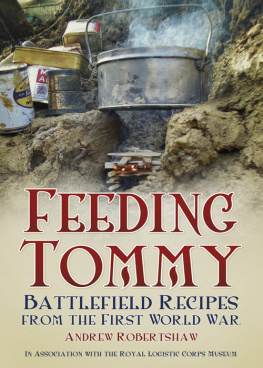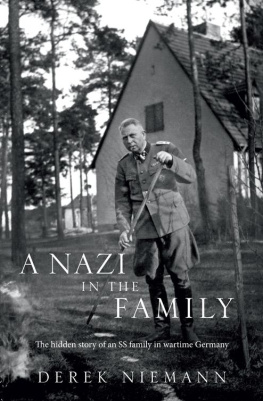Greasepaint and Cordite

Look, dear, a contract from ENSA !

To my dad, Eric Merriman, and to all the troops and troupers of the Second World War
ABCA | Army Bureau of Current Affairs |
ADGB | Air Defence of Great Britain |
ATS | Auxiliary Territorial Service |
BBC | British Broadcasting Corporation |
BEF | British Expeditionary Force |
BESA | Bengal Entertainment for Services Association |
CEMA | Council for the Encouragement of Music and the Arts |
CPA | Central Pool of Artistes |
CSE | Combined Services Entertainment |
ENSA | Entertainments National Service Association |
FBU | Forces Broadcasting Unit |
ISSB | Inter Services Security Board |
ITMA | Its That Man Again |
MESA | Mobile Entertainments Southern Area |
NAAFI | Navy, Army and Air Force Institutes |
OCTU | Officer Cadet Training Unit |
PAIFORCE | Persia and Iraq Force Command |
RADA | Royal Academy of Dramatic Art |
RAOC | Royal Army Ordinance Corps |
SEAC | South East Asia Command |
SIB | Stars in Battledress |
SSVC | Services Sound and Vision Corporation |
USO | United Service Organisations |
WAAC | Womens Auxiliary Army Corps |
WAAF | Womens Auxiliary Air Force |
WRNS | Womens Royal Naval Service |
1939
15 March: German troops march into Czechoslovakia.
31 March: Britain and France pledge support to Poland.
23 August: Adolf Hitler and Joseph Stalin sign GermanSoviet Non-Aggression Pact.
25 August: Treaty of Mutual Assistance is signed by Britain and Poland.
1 September: Poland invaded by Germany.
3 September: War is declared by Britain and France on Nazi Germany; National Services (Armed Forces) Act is passed by Parliament; Franklin D. Roosevelt declares neutrality in European war.
1940
9 April: Denmark and Norway are invaded by Germany Denmark surrenders the same day (Norway surrenders on 9 June).
10 May: Hitler launches Western Offensive and France falls. Winston Churchill replaces Neville Chamberlain as Prime Minister.
13 May: Ernest Bevin appointed as Minister of Labour and National Service by Winston Churchill.
14 May: Formation of the Home Guard is announced by Anthony Eden. The Netherlands surrender to Germany.
26 May: The Dunkirk evacuation begins.
28 May: Belgium surrenders to Germany.
4 June: Final 338,000 British, French and Belgian forces are evacuated from Dunkirk.
10 June: Benito Mussolini declares war on the Allies.
14 June: German troops enter Paris; Armistice negotiations with Germany and new Prime Minister Henri-Philippe Ptain begin.
22 June: Armistice signed between Germany and France.
16 July: The Luftwaffe initiates the Battle of Britain.
8 August: Intensive phase of attacks begin as the Luftwaffe attacks British fighter airfields and installations.
25 August: The Blitz begins.
13 September: Italy invades Egypt.
27 September: Tripartite Act is signed by Germany, Italy and Japan.
28 October: Italian forces invade Greece.
1941
22 January: British forces capture the port of Tobruk in Libya.
11 March: US Congress passes the Lend-Lease Act.
6 April: Germany, Italy, Hungary and Bulgaria invade Yugoslavia. Greece is invaded by Germany and Bulgaria in support of Italy.
24 May: The Bismarck sinks British battle cruiser HMS Hood.
27 May: Battleship Bismarck is sunk.
1 June: Government introduces plans to ration clothes and furniture.
22 June: Operation Barbarossa, the German invasion of Russia, is launched.
13 November: The Ark Royal is torpedoed and sunk off Gibraltar.
7 December: Japanese forces attack the US fleet at Pearl Harbor.
8 December: The US declares war on Japan.
11 December: Japanese invasion of Burma begins.
18 December: Conscription of unmarried women heralded by the passing of Parliaments National Service Act.
22 December: The start of the Washington Conference, in which Anglo-American military resources are to be coordinated.
26 December: Hong Kong is surrendered to Japanese Imperial Forces.
1942
30 January: Japan completes the capture of Malaya.
15 February: General Arthur Percival surrenders Singapore to Japan.
1 March: Japan starts the invasion of Java.
8 March: Rangoon falls to Japan.
15 April: King George VI awards the George Cross to the people of Malta.
30 May: Arthur Harris orders the first thousand-bomber raids on Germany.
21 June: Tobruk is captured in surprise attack by German forces.
22 June: Construction on the BurmaThailand Railway begins. Approximately 60,000 British, Australian, Dutch and American prisoners of war will be forced into hard labour.
4 July: The first Battle of El Alamein ends in a stalemate.
13 August: General Bernard Montgomery is appointed Commander of the British 8th Army.
4 November: The second Battle of El Alamein ends in victory for the Allies.
8 November: Operation Torch sees Allied forces land in French North Africa.
11 November: Germans launch Operation Anton, occupying southern France in response to Operation Torch.
13 November: The British Army recaptures Tobruk.
2 December: The Beveridge Report is published.
1943
18 January: The Luftwaffe recommences air attacks on London.
13 May: Axis forces surrender to Field Marshal Montgomery in Tunisia.
10 July: Allied troops land in German-occupied Sicily.
3 September: Allied forces land in Italy.
8 September: President Roosevelt announces that the Pietro Badoglio government of Italy has signed an unconditional armistice with the Allies.
1 October: The 5th Army captures Naples.
13 October: Italy declares war on Germany.
18 October: The first Moscow Conference begins.
18 November: RAF Bomber Commands Berlin Air Offensive begins.
28 November: The Tehran Conference, codenamed Eureka, takes place with Churchill, Roosevelt and Stalin ready to confirm Normandy landings.
1944
5 March: Orde Wingate launches Operation Thursday in Burma.
24 March: Orde Wingate is killed in a plane crash in Burma.
18 May: Monte Cassino is captured by Allied troops.
5 June: General Mark Clark and Allied troops liberate Rome.
6 June: Operation Overlord (D-Day landings) commences.
20 July: The city of Caen is finally captured by Allied troops.
25 August: With support from Allied Troops, Free French Forces enter Paris.














